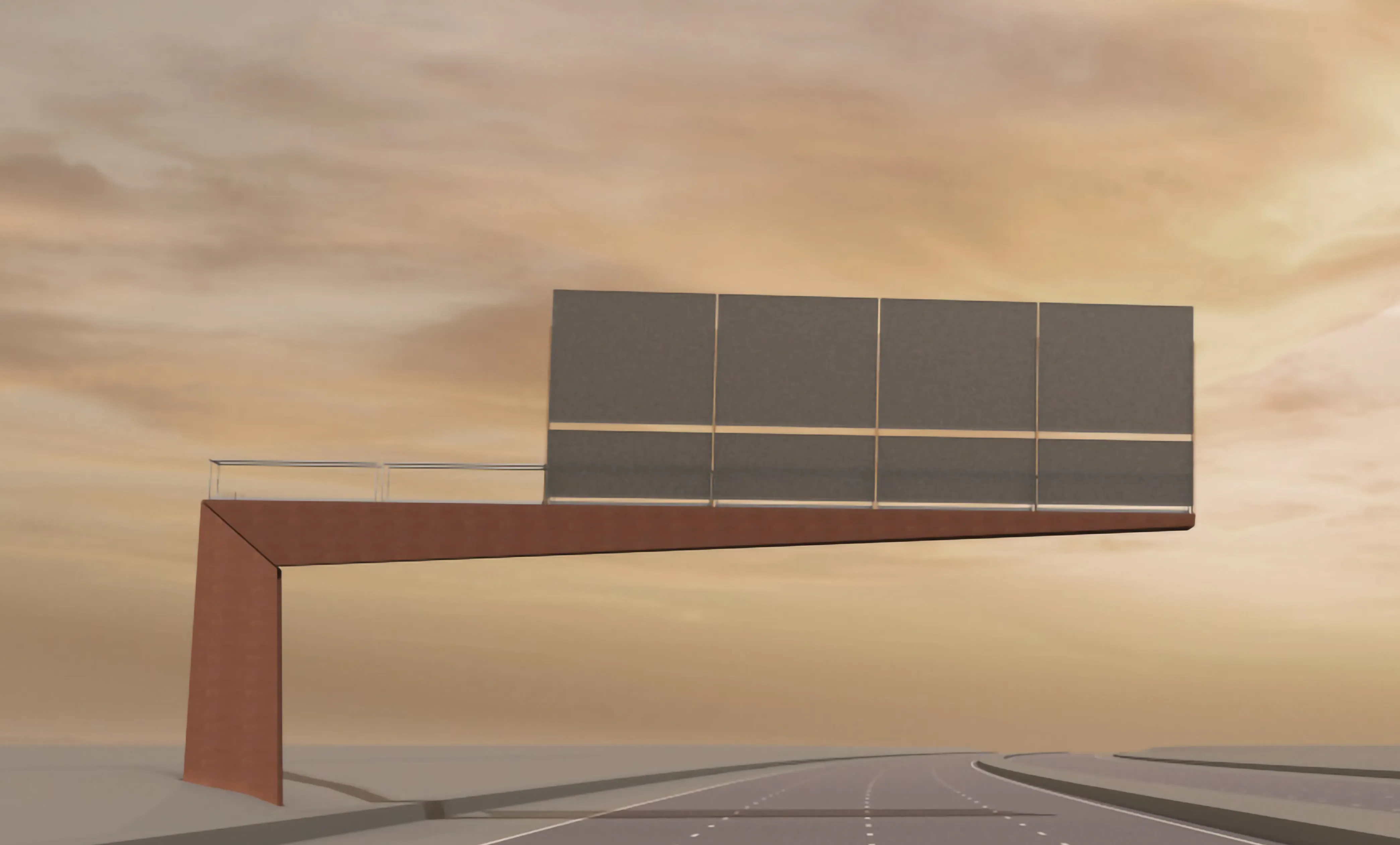
Designers don't only ply their trade on catwalks: UK roads operator National Highways has announced the winners of its design competition to find new types of gantry - which could be seen on roads as early as 2025.
Organised in conjunction with the Royal Institute of British Architects (Riba), there were 32 entries from architectural firms from across Europe.
The winner, by Useful Studio, was chosen by the judging panel for its "elegance and simplicity, and how cohesive the design concept was across a range of different structures".
It is projected to have a reduced carbon footprint compared to current gantries - it uses less steel than existing designs - which was another reason for its win, and Useful Studio will now work with National Highways to develop the concept, with a view to it "becoming the standard design for new roads and major upgrades from around two years’ time".
National Highways says it has been seeking "a more streamlined, elegant and consistent visual appearance for roadside gantries to enhance the public’s driving experience".
Existing designs, it adds, "tend to be heavily engineered, with an emphasis on function over form".
While there are currently 3,500 gantries on the network, National Highways says it won’t be immediately replacing structures.
"Our challenge is to create innovative structures that can accommodate the required signage and equipment that are more sympathetic to the environment," explains National Highways executive director for operations Duncan Smith.
“This is a great opportunity for us to develop a more streamlined, elegant, and consistent visual appearance for roadside gantries to enhance drivers’ experience when driving on England’s motorways and major A-roads."
Jonathan McDowell, Riba architect adviser said: “It is very encouraging that National Highways is actively engaging the design community in helping to improve the design of these ubiquitous but cumbersome parts of the motorway experience – we enjoyed seeing a wide range of interesting ideas, including those which challenged National Highways' current practices."
National Highways good design initiative set out 10 principles for good road design including that they should:
• fit into context: good road design demonstrates sensitivity to the landscape, heritage and local community
• be understandable: good road design focusses on the essentials and eliminates unnecessary and confusing clutter
• be environmentally sustainable: multi-functional, resilient and sustainable, good roads achieve net environmental gain










